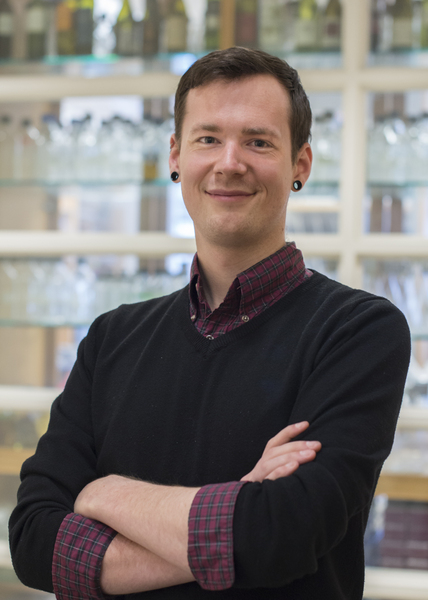Meet the Editor: Michael Marquis
Have you ever wondered about the scientists behind JEI's editorial and review process? We recently spoke with Editor-in-Chief Michael Marquis to learn more about his experiences with JEI, as well as his own scientific research at Harvard Medical School.

Michael is a 4th year PhD student in Harvard's Program in Neuroscience (PiN), performing his thesis research in the lab of Dr. Rachel Wilson in the Department of Neurobiology at Harvard Medical School.
What do you study for your thesis research in the Wilson Lab?
I am broadly interested in understanding how sensory information is encoded and processed in neural circuits. I use in vivo electrophysiological recordings and functional imaging of specific neurons in the fruit fly brain to characterize the neural computations that occur during sensory processing, and to learn how these computations transform information about the world into a form that the brain can use to select an appropriate behavioral response.
What was your motivation to start working with JEI?
I heard about JEI when I first started grad school and immediately realized the huge impact an organization like this could have on young scientists, since there are very few opportunities for students to learn about the details of scientific publishing firsthand until they are several years into college. I would have loved to have an opportunity to work with an organization like JEI when I was in high school, so I enjoy helping other young scientists hone their research skills and showcase their research while learning about the scientific publishing process.
How long have you served with JEI, and how many manuscripts have you edited?
I started working with JEI in the fall of 2014 as an associate editor, and have been an editor-in-chief since early 2017. I served as lead editor on seven manuscripts while I was an associate editor, and have handled 35 manuscripts so far as an editor-in-chief.
What was the most memorable paper you have edited, and why?
One author did a really cool study about the effects of antibiotics on nutrient digestion – it was a really creative and interesting scientific question and the author did a great job designing the experiments and communicating their results and conclusions.
What is your favorite part about working with JEI?
I love seeing how a manuscript has improved when the revised version is resubmitted after the review stage! It’s fun to see how much some of the student authors learn about scientific writing throughout this process.
What is the most challenging aspect of working with JEI as an editor?
It can be sometimes be difficult to figure out the best way to synthesize comments from multiple reviewers in a way that is easy for the authors to implement and understand.
What advice would you have for JEI student authors when writing their manuscripts?
When you are starting to write up your manuscript, spend some time browsing through the previously published manuscripts on the JEI website for inspiration! This can be a great way to get a feel for the structure, tone, and format of a typical scientific paper, and you’ll also get to see some of the interesting research that our other student authors have conducted.
What’s one interesting (or strange!) fact about you?
Before entering my current PhD program, I spent time in the rainforests of Costa Rica studying the ecology and evolutionary biology of leaf-cutter ants.